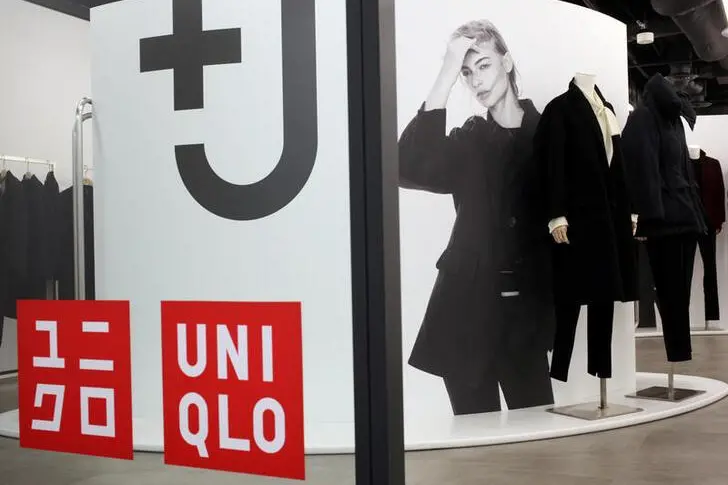PHOTO
TOKYO - Clothing brand Uniqlo's Japanese owner on Thursday said operating profits were higher than pre-pandemic levels in its first quarter, boosted by China's resurgence and strong demand for stay-at-home jogging pants and other comfortable styles.
But Fast Retailing said it was hard to predict the impact of the pandemic beyond the next several months, an uncertainty some analysts said could limit further gains in the shares which hit record highs ahead of the results.
Fast Retailing has widely been viewed as one of the most resilient retailers during the pandemic, despite suffering a hit in the early days from its dependence on China for both manufacturing and sales.
The company runs about 800 Uniqlo stores in mainland China, roughly the same number as in its home market, Japan.
"For now we are fully on track to meet our forecast for the year," CFO Takeshi Okazaki told reporters, referring to its earlier full-year estimate of 245 billion yen in operating profit on 2.2 trillion yen in sales. "But the lack of visibility with the coronavirus means a possibility of a big fluctuation."
Fast Retailing's operating profit in the three months through November rose to 113.1 billion yen ($1.09 billion), up 23% from a year earlier.
That beat the market's consensus view of 104.7 billion yen. Quarterly sales fell 0.6% to 619.8 billion yen and missed expectations for 640 billion yen, based on the average of analysts' forecasts from Refinitiv.
Uniqlo's focus on China and Japan helped it to escape the worst of a global retail downturn from the crisis, which has hit other markets such as the United States and Europe harder.
The company cited a large profit gain in mainland China in the quarter, helped by strong demand for warm clothing and growth in margin-boosting online sales.
Both Uniqlo and cheaper sister brand GU have also benefited from strong demand for comfortable clothes, such as loose-fitting T-shirts and stretchy pants as more people work from home.
Okazaki said as a sell-out collection with German designer Jil Sander, priced above Uniqlo's average range, also helped to bolster business in Japan during the quarter, boosting spending per customer by nearly 7%.
Some analysts said the steady increase in infections in Japan, where the government recently called a second state of emergency, meant it was too early to declare an all-clear.
Some said much of the recovery story was already priced into the shares, which have risen more than 40% in the past 12 months, double the gain on the Nikkei 225 average.
They hit a record high of 95,310 yen on Thursday and closed at 93,660 yen before the results announcement.
"The question is never about how much better they can be compared to rivals – that is a given," said Jefferies analyst Michael Allen.
"It's more about how much better they can be next year... This year, because of the pandemic, it will be easy, but next year, it will become difficult again." ($1=104.0100 yen)
(Reporting by Ritsuko Ando; Editing by Kim Coghill, Clarence Fernandez and Jane Merriman) ((Ritsuko.Ando@reuters.com; +81 3 6441 1743;))





















